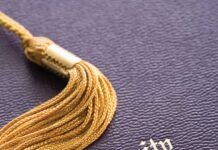An estimated 350,000 individuals in the United States will suffer this year from a sudden cardiac arrest. About 52,500 of these individuals will die from sudden cardiac arrest while working, running errands or having fun. According to the Sudden Cardiac Arrest Foundation, the number of people who die from sudden cardiac arrest is equivalent to the number of people who die from Alzheimers’ disease, assault with firearms, breast cancer, cervical cancer, colorectal cancer, diabetes, HIV, house fires, motor vehicle accidents, prostate cancer and suicides combined.
These deaths can be preventable with the use of an automated external defibrillator (AED). An AED is a portable device that checks the heart rhythm and can send an electric shock to the heart to try to restore a normal rhythm and is used in cases of sudden cardiac arrest.
Timing matters. For every minute following sudden cardiac arrest that an individual goes without defibrillation from an AED, that individual’s chances of surviving goes down by 10 percent. Brain death and permanent death start to occur 4-6 minutes after cardiac arrest. The immediate use of an AED can increase an individual’s probability of survival up to 70 percent.
Despite the lifesaving capabilities of AEDs, not all businesses install these live saving devices.
For Mary Ann Verdugo, 49, this was the difference between life and death. Ms. Verdugo was shopping at a retail store with her family when she suffered from sudden cardiac arrest and collapsed. In response to a 911 call, paramedics were dispatched which took them several minutes to reach the store, and several more minutes to reach Verdugo inside. By the time the paramedics arrived at her side, Verdugo could not be resuscitated.
Unfortunately, the California Supreme Court found that the retail store was not required to have an AED device. That is why I authored Senate Bill (SB) 287, which was signed into law by Governor Jerry Brown this month. The bill will now require newly-constructed buildings with large occupancies to install AEDs. This is an amazing tool that will save countless lives.
San Diego has been at the forefront of public access to defibrillation. SB 287 is modeled after a San Diego City Ordinance authored by former San Diego Councilmember Jim Madaffer. It is my hope that SB 287 can become a model to increase access to AEDs across the country and save lives.
State Sen. Ben Hueso represents California’s 40th District.














